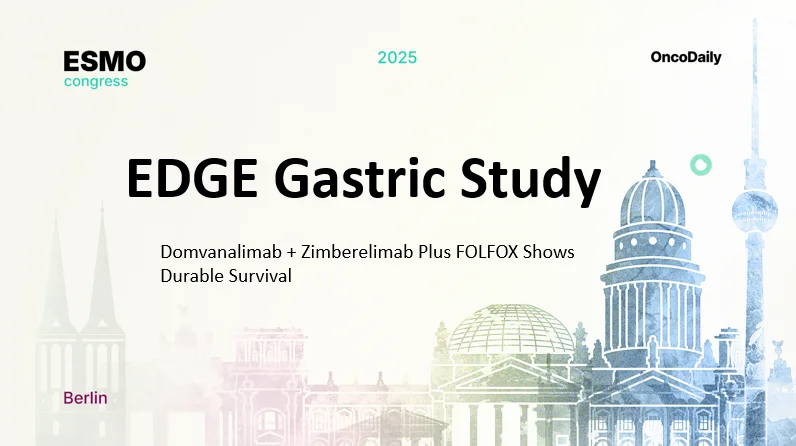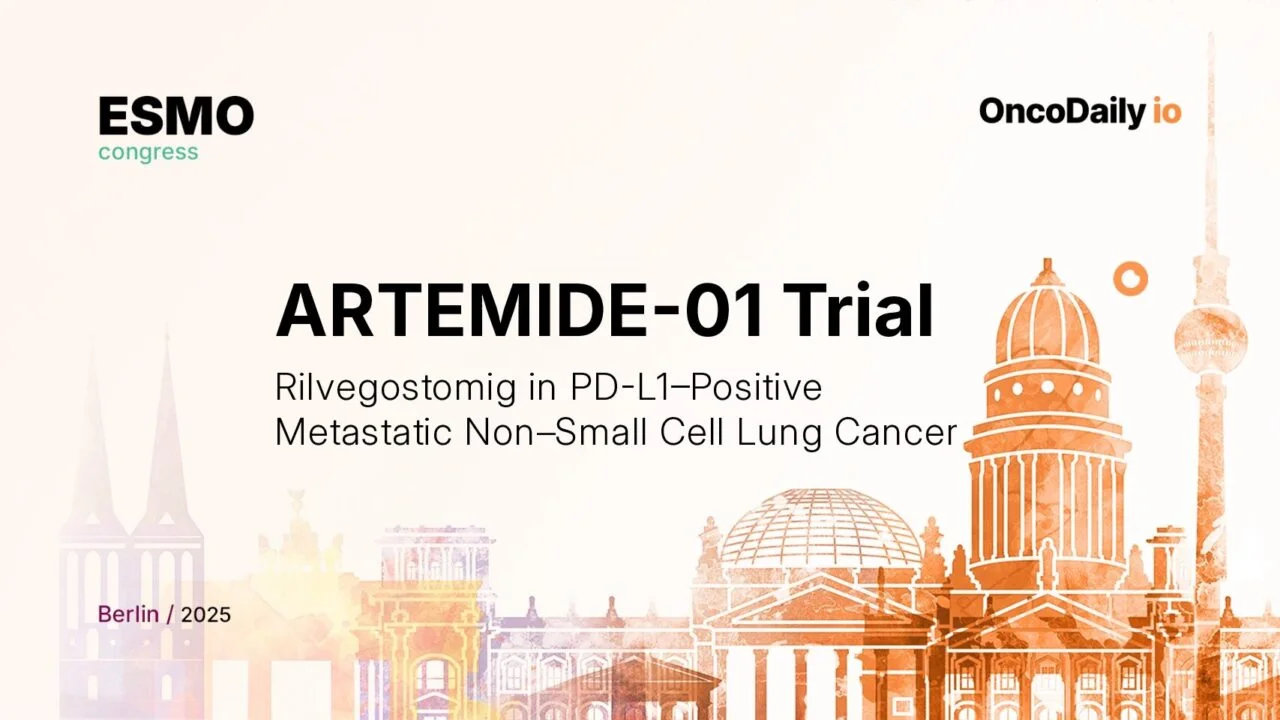Presenter: Byoung Chul Cho, MD, PhD (Seoul, Republic of Korea)
Co-authors: Jeroen T. Hiltermann, Hiroki Izumi, Mariana Brandão, Sulene C. Oliveira, Pongwut Danchaivijitr, Enriqueta Felip, Gwo Fuang Ho, Konstantinos Leventakos, Yongsheng Li, Shunichi Sugawara, Pei-Jye Voon, Els Wauters, Tsung-Ying Yang, Tatsuya Yoshida, Huifang Chen, Ikbel Achour, Steve Colebrook, Nelson Liu, Yongsheng Wang.
Trial ID: NCT04995523
Funding: AstraZeneca.
Rilvegostomig is a novel bispecific monoclonal antibody targeting both PD-1 and TIGIT receptors, designed to enhance antitumor immune activity beyond what is typically achieved with PD-1/PD-L1 inhibitors alone. This dual blockade approach seeks to potentiate T-cell activation and overcome immune escape mechanisms, potentially producing more durable responses in advanced solid tumors.
The ARTEMIDE-01 trial (NCT04995523) represents the first-in-human study of rilvegostomig in patients with metastatic non-small cell lung cancer (mNSCLC) who had not previously received immune checkpoint inhibitors (CPI-naïve). This analysis provides an efficacy and safety update in two key subgroups based on PD-L1 tumor proportion score (TPS):
- 1–49% (intermediate expression)
- ≥50% (high expression)
Methods
Patients with CPI-naïve mNSCLC were enrolled into:
- Part C: PD-L1 TPS ≥ 1%, treated with rilvegostomig 750 mg IV every 3 weeks (Q3W).
- Part D: PD-L1 TPS ≥ 50%, same dose and schedule.
Primary endpoints included objective response rate (ORR) per RECIST v1.1 and safety.
Secondary endpoints were duration of response (DoR) and progression-free survival (PFS).
By the data cutoff (April 21, 2025), 65 patients had been enrolled. Notably, 24.6% had received prior chemotherapy, 12.3% had liver metastases, and 21.5% had brain metastases.
Results
The treatment with rilvegostomig was generally well tolerated across the study population. Treatment-related adverse events (TRAEs) were common but mostly manageable, and discontinuations due to toxicity were rare, occurring in only 3.1% of patients. Grade 3 TRAEs were reported in 12.3% of participants, with no Grade 4 or 5 events observed. Overall, the safety profile was considered favorable, even in patients who had received prior chemotherapy or had extensive metastatic disease, indicating that dual PD-1/TIGIT blockade is both feasible and well tolerated in this setting.
From an efficacy standpoint, outcomes differed according to PD-L1 tumor proportion score (TPS).
- In patients with high PD-L1 expression (TPS ≥ 50%, n = 34), the objective response rate (ORR) was 61.8%, and the median progression-free survival (PFS) was 12.3 months (95% CI, 8.4–not calculable). The 12-month PFS rate was 55.5% (95% CI, 37.3–70.3). Many responses were durable, with several patients remaining in response for more than 10 months, and the median duration of response (DoR) had not yet been reached.
- In contrast, for patients with intermediate PD-L1 expression (TPS 1–49%, n = 31), the ORR was 29.0%, the median PFS was 6.1 months (95% CI, 2.7–8.3), and the 12-month PFS rate was 27.2% (95% CI, 12.9–43.6). The median DoR in this subgroup was 9.9 months (95% CI, 4.1–14.6).
When PD-L1 expression was reassessed using central testing (Ventana SP263 assay), the efficacy outcomes were even more encouraging. The ORR increased to 68.2% in patients with PD-L1 ≥ 50% and 34.8% in those with PD-L1 1–49%, demonstrating consistent and robust antitumor activity across both testing platforms.
Among patients who were both CPI-naïve and chemotherapy-naïve, the results were particularly impressive.
- For PD-L1 ≥ 50%, the ORR reached 67.7%, with a median PFS of 21.2 months.
- For PD-L1 1–49%, the ORR was 44.4%, and the median PFS was 7.8 months.
Importantly, more than half of all responders (53.3%) were still experiencing ongoing responses at the time of data cutoff, highlighting the durability of benefit with rilvegostomig.
Conclusions
Rilvegostomig demonstrated promising efficacy and manageable safety in CPI-naïve metastatic NSCLC, particularly among patients with high PD-L1 expression, where response rates exceeded 60% and median PFS reached 12–21 months.
No grade 4–5 toxicities were observed, and treatment discontinuations were rare, highlighting the agent’s favorable tolerability profile.
These results support the continued development of rilvegostomig in lung cancer, including ongoing phase III ARTEMIDE trials:
- ARTEMIDE-Lung02 (NCT06692738)
- ARTEMIDE-Lung03 (NCT06627647)
- ARTEMIDE-Lung04 (NCT06868277)

You Can Also Read About EDGE Gastric Study at ESMO 2025: Domvanalimab + Zimberelimab Plus FOLFOX Shows Durable Survival


